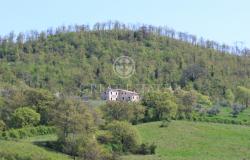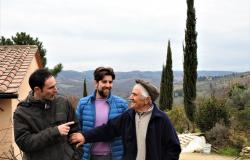 (ANSA) - Roman soldiers who disappeared out of enemy hands founded a city in eastern China, archaeologists say.
(ANSA) - Roman soldiers who disappeared out of enemy hands founded a city in eastern China, archaeologists say.
The phantom legion was part of the defeated forces of Marcus Licinius Crassus, according to the current edition of the Italian magazine Archeologia Viva.
The famously wealthy Crassus needed glory to rival the exploits of the two men with whom he ruled Rome as the First Triumvirate, Pompey the Great and Caesar.
Crassus decided to bring down the Parthian Empire - a fatal choice. His forces were routed in 53 BC outside the Mesopotamian
city of Carre - today's Harran - and he was beheaded. According to the Roman historian Pliny, the Romans who survived were taken to a prison camp in what is now northern Afghanistan.
When Rome and Parthia sued for peace in 20 BC - 33 years after Crassus's last battle - all trace of the prisoners had disappeared. The survivors of Crassus's legion became a mystery, walking ghosts in Roman legends.
A Chinese historian in the Han Empire, China's second dynasty, provided an answer to the riddle in the early 3rd century AD. The historian, Bau Gau, wrote that a Chinese war leader defeated a group of soldiers drawn up in typical Roman formation. Crassus's old troops must now have been in their fifties and sixties.
Bau Gau said the foreigners were moved to China to defend the strategically important eastern region of Gansu, near today's city of Yongchang. This is where the survivors founded the city of Liquian, the only site in China where the mark of Ancient Rome can be seen. The city has been virtually unknown outside China although hundreds of people visit it each year, admiring
traces of defensive wallworks and pieces of broken pottery. The number of visitors is certain to rise.
Crassus, celebrated as the richest Roman of them all in pre-Imperial days, was never satisfied with his wealth and had an undying lust for glory. Eighteen years before his doomed expedition to Parthia he put down a slave revolt led by the Thracian slave Spartacus. In Stanley Kubrick's epic film he was played by Laurence Olivier.









